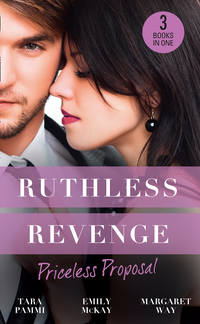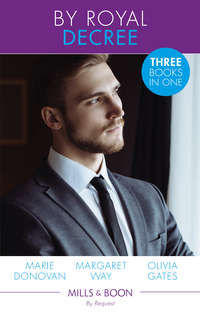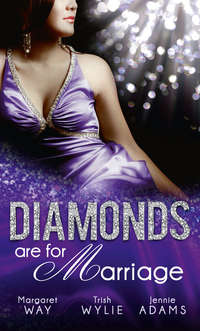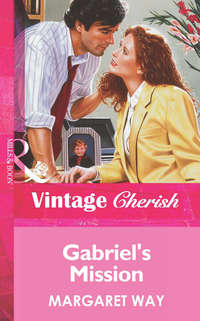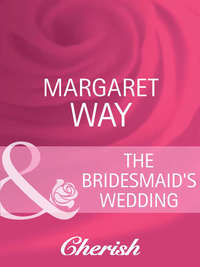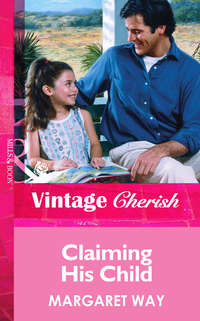
Полная версия
Six Australian Heroes
She’d been allotted a charming bedroom. It had blue and white dotted wallpaper, a double bed beneath a white silk quilt and French Colonial furniture on a powder-blue carpet. She had her own en suite bathroom.
But—she hitched her pillows up a bit—there was a slightly neglected air overall. Not so surprising, perhaps, with all the dusting and polishing that was required and after some years without a mistress, only a master, in charge of the house.
She sat up with a sudden frown. Lee Richardson.
No wonder she’d got that impression four years ago that there was more to him than being at home in a boardroom! He not only controlled a vast cattle empire, but he’d also been brought up on cattle stations.
No wonder he was quick-thinking, resourceful and physically powerful.
And, yes, still a compellingly attractive man who’d haunted her dreams for a while but only in a fantasy way, surely? When you’d been dumped by a fiancé upon discovery that you didn’t stand to inherit a fortune, when you’d lost the most precious thing you thought you could ever have, the scars were too deep even to think of falling in love again, weren’t they?
She grimaced. They certainly had been over the past few years. Apart from a small hiatus when a man she’d shared a taxi with had invaded her imagination, she’d lived like a nun, she’d thought like a nun in so much as no other man had made any impression on her.
Then again, maybe she’d just been too busy, too tied down with responsibilities to live any other kind of life. Which led her to wonder if the scars she’d carried had healed more than she’d realised.
Was that why Lee Richardson had walked back into her life and reawakened some awkward memories rather successfully? Or was it the way he looked at her …?
She swallowed uncomfortably and pleated the coverlet with slender ringless fingers. Then she reminded herself that she was here on a job and no man, however he might embody that sort of aloof, irresistible glamour, was going to stand in her way of doing it.
So she would revert to that nun-like status smartly!
She got up and showered. She pulled a pair of jeans on, a navy blouse and a sky-blue sleeveless quilted jacket—easy to shed when the cool of a morning on the hinterland escarpment warmed up.
There was no one in the kitchen, no sign of life in the house, so she made herself a mug of tea and took it outside to have a look at the gardens.
What met her eyes as she came round the back of the house, or the side the main rooms looked out onto, took her breath away.
Smooth green lawn, a rose garden to die for, a sparkling, grotto-like swimming pool with a shingle-roofed pool house with fluted columns to match the main house, then the ground fell away and the view hit you.
Unobstructed views all the way to the blue Pacific Ocean, rimmed, but looking small and insubstantial in the distance, by the towers of Surfers’ Paradise and the Gold Coast. She could even see three hot-air balloons that she appeared to be looking down on.
She was drinking it all in when a voice behind her said, ‘Morning, ma’am.’
She turned to see a man in overalls, boots and an old baseball cap carrying a set of baskets and a set of secateurs. He introduced himself as the head gardener, Cliff Reinhardt.
Rhiannon introduced herself and complimented him on his roses. He immediately offered her some for the house as well as some fresh vegetables, and gave her a tour of the garden.
Half an hour later Rhiannon not only had a basket of fresh fruit and vegetables—strawberries, cucumbers, a variety of lettuce, the most mouthwatering-looking tomatoes, asparagus, aubergines and more—but she also had enough roses to fill several large vases.
The garden was Cliff’s pride and joy and rightly so. It was three acres, although the whole property took up fifteen, of sweeping lawns, huge gum trees, secret walkways and shady nooks. There was a delightful loggia smothered in port-wine magnolia. There were beds of agapanthus, lavender, daisies and gardenias as well as native plants renowned for attracting birds like grevilleas, melaleucas and kangaroo paw. The hedge-enclosed herb and vegetable garden was a work of art.
She’d learnt that Cliff sold most of his fruit and vegetables locally since there was rarely anyone in residence nowadays, although that looked set to change.
And she’d learnt that Cliff had been widowed when his daughter, Christy, was a baby—she was now eleven going on eighteen, he told Rhiannon, and they lived on the property.
It was impossible to miss the fact that Cliff Reinhardt was devoted to the Richardson family.
They were carrying all the bounty to the kitchen through the stable yard—the stables were also sandstone, two wings with a shingle roof and marvellous gold and black wrought-iron weather vane—when the clatter of hooves alerted Rhiannon to the fact that someone had gone for an early-morning ride.
It proved to be Lee Richardson on a large, spirited bay and Christy, Cliff’s daughter, on a smaller almost white pony called Poppy.
They reined in and dismounted and a lad emerged from the stables to take Lee’s horse and call the dogs to order.
Both horses were steaming, both riders looked invigorated and glowing and Christy brought Poppy over to be introduced.
Rhiannon patted the pony and scratched her nose. ‘I tell you what, Poppy,’ she murmured, as she eyed the arrival expertly, ‘you may look as if butter wouldn’t melt in your mouth but I wouldn’t be surprised if you could talk.’
Christy laughed delightedly, and Poppy, still looking angelic, went to nip Rhiannon on the wrist.
She pulled her arm away in time and Christy scolded the pony in such loving tones, she probably thought she was being praised. Then again it was obvious that the motherless Christy adored her pony.
Rhiannon grimaced; she knew what it was like to be motherless—although not at such a young age. She found herself looking into Lee Richardson’s amused eyes.
‘You’re up and about early,’ he said.
He wore jeans, short boots and a navy pullover with military patches. He’d taken off his hard hat and ruffled his dark hair and she’d been right about designer stubble. The blue shadows on his jaw added a definitely sexy aura to his overall aura that was intensely masculine and powerful but marvellously streamlined.
He was the kind of man who took your breath away whether you liked it or not. The kind of man who, through those lazy but all-seeing blue eyes, was probably perfectly aware of the effect he had on you.
Even to the battle you were waging with your better judgement. Not to mention some wayward purely physical responses your body—quite without your permission!—was experiencing.
Rhiannon set her teeth and concentrated for a moment on banishing the insidious little ripples of sensation that the pure appreciation of the fineness of Lee Richardson had produced.
Then she said wryly, ‘Got a big two days ahead!’ She turned to Cliff. ‘Thanks so much for all this. I promise I’ll put it to good use.’
‘My pleasure. I’ll have some more roses for you tomorrow but I’ll help you carry—’
‘It’s OK, Cliff,’ Lee broke in. ‘I’ll do it.’ And he hefted the fruit and vegetable baskets leaving Rhiannon to bring the roses.
The spacious kitchen had windows overlooking the garden.
It was not only a good place to work, Rhiannon thought, with its leafy outlook and its pot plants, but it was also truly pleasant.
They put everything on the box pine table—there was still no sign of anyone—and Lee went to put the kettle on.
‘What time does the staff start?’ she asked with a frown.
‘Eight o’clock or thereabouts.’ He consulted his watch. ‘Not for another hour. Sharon—she’s chief cook and bottle-washer—has a school-age kid, which accounts for her late start, and the variety of cleaners she is responsible for,’ he tipped his hand, ‘appear to please themselves.’
He made himself a cup of instant coffee and came back to the table to sit down. ‘You don’t approve?’
One thing she always guarded against was being too critical so she said only, ‘Maybe we could work out a better system.’ She eyed the colourful mounds on the table. ‘But first things first. I need to get these roses into water. Would you know where the vases are?’
He rubbed his jaw. ‘Sadly, no.’
‘Oh, well, they must be somewhere.’ She started opening cupboards but none held vases.
‘Perhaps the cabinets in the dining room?’ he suggested. ‘You seem to know a bit about horses.’
‘I had a couple of cunning, bad-tempered ponies myself.’ She smiled and walked through to the dining room, where the cabinets he’d mentioned yielded gold. She brought back four vases, two of them heavy crystal, one of them silver and the last a porcelain urn decorated with birds of paradise.
‘I must say,’ she commented as she traced the birds with her fingertips, ‘your home is literally stuffed with the most glorious array of fine old things.’ She looked around for a chopping block and she found a meat mallet and started to crush the stems of the roses and arrange them in the vases. ‘I feel,’ she looked up and smiled at him, ‘like a little girl let loose in a candy store.’
He watched her for a while, how she stood back to study the effect she was achieving, how she blended the colours—pink, yellow, salmon, crimson and cream; how, when she was concentrating, she looped the long side of her hair behind her ear, although it never stayed there. And how expertly she was arranging the roses.
A little different, he reflected, from the swiftly passing but obvious confusion she seemed to have experienced when he’d first spoken to her earlier.
Not such an iron maiden when it comes to men maybe, Ms Fairfax, if you ever were? he thought ironically. But, of course, the irony touches me as well, doesn’t it? I put her down as just another woman on the make then I made a resolution not to allow myself to be intrigued, but I seem to be growing more interested by the minute.
‘My mother and my grandmother were great collectors,’ he said at last. ‘Did you always have an appreciation of fine old things?’
‘I guess so. There.’ She moved the vases to a counter. ‘I’ll work out where to put them shortly. In the meantime I should concentrate on the menu for tomorrow, but,’ she looked across at him, ‘are you a breakfast person?’
He nodded.
‘So am I. I’m starving. How about a herb omelette?’ Her fingers hovered over the array of Cliff’s fresh herbs.
‘That sounds—terrific,’ he said gravely.
‘And some fresh, proper coffee.’ She looked at his mug with disfavour.
‘Miss Fairfax, will you marry me?’
She laughed. ‘Thank you, sir, but I must respectfully decline.’
‘What I don’t understand,’ Rhiannon said half an hour later when they’d consumed her delicious omelette and she was pouring real perked coffee, ‘what I mean to say is—um—great wealth is associated with the Richardson family so.’
‘So why do I put up with this state of affairs?’ Lee Richardson said with a trace of humour. ‘I don’t. I don’t spend much time here at all these days. The place hasn’t really been lived in since my father moved to the south of France. But things have changed now. It seemed sad for it to stand empty with a skeleton staff when Matt and Mary could make it their home.’
Rhiannon nodded without comment.
‘I think she does want to learn,’ he murmured.
‘I’ll do my best. Now I really should get busy, Mr Richardson.’ She stood up.
‘Just a moment.’ He frowned. ‘What’s your background, Rhiannon?’
She shrugged. ‘Nothing much.’
‘So where did you learn all your—expertise?’
‘Here and there.’ It was her turn to frown. ‘I’m sure your very correct PA checked my business record and my references in case you’re wondering whether I’m likely to nick the silver.’
‘It’s not that.’
Rhiannon sent him a speaking look that said clearly—it had better not be.
He stood up. ‘Why so secretive, though?’
‘Look, I come and I go. I do my level best to get things running smoothly but I always try to retain a professional … distance, if you like.’
‘All the same, you’re Luke Fairfax’s daughter, aren’t you?’
CHAPTER TWO
RHIANNON froze. ‘How did you—?’ She stopped abruptly.
‘How did I know? I didn’t until last night. But something about your name niggled me so I looked it up on the internet. I came up with, amongst others, Luke and Reese Fairfax.’
He paused and shrugged. ‘They were household names until a few years ago. Two musicians who’d gone into the entrepreneurial side of the business. Their open-air country-music and rock concerts were legendary and made them a lot of money. They had one child, a daughter, Rhiannon, who would be twenty-six now.’
He paused and studied her sudden pallor. ‘I’m sorry if this is painful but I believe that your father is still alive, although your mother passed away at the time of the company crash?’
Rhiannon swallowed. ‘Yes, but I don’t see what it has to do with you.’
He eyed her meditatively. ‘I just like to have things right, although—not that it has anything to do with you—Richardson’s, as a creditor, lost a fair amount of money in the collapse of your father’s empire.’
‘Now you’ve really made my day,’ Rhiannon said, standing uncharacteristically still. ‘So you are concerned about my honesty? In which case, I think it’s best if I leave immediately.’
‘Oh, no, you don’t—’
‘You can’t stop me,’ she flashed at him.
‘I could but I won’t,’ he said coolly. ‘Sit down and listen.’
Rhiannon eyed him and couldn’t quite suppress a little shiver. He looked so very much the man who always got his way she’d sensed yesterday at the airport and there was no denying his physical presence was impressive, even dressed in jeans and sporting designer stubble—if anything, that made him more impressive.
She forced herself to say, however, ‘I’ll stand and listen.’
He shrugged. ‘I’m not at all concerned about your honesty. It wasn’t your father’s dishonesty that caused the crash. There were a lot of factors involved. There were some bad, rather erratic judgements made but show business is notoriously difficult to predict.’ He sat down again and shoved his hands into his pockets. ‘Of course, many of the details aren’t known.’ He looked at her interrogatively.
Rhiannon, rather blindly, went to move away but he got up and propelled her back to her chair. When she hesitated then sat down, he poured them both another cup of coffee and sat down himself.
‘I don’t suppose the heiress to what was once quite a nice little fortune expected to find herself doing this,’ he said.
Rhiannon looked around. ‘No, but funnily enough I enjoy it for the most part.’
‘So what really did lead to the demise of the family fortune?’
She fiddled with her teaspoon then shrugged. ‘I suppose, as a creditor, you’re entitled to know.’ She paused and frowned. ‘How did you become a creditor?’
He stirred his coffee. ‘We have a transport division. It started out as a cattle-trucking operation but we expanded into a national express freight carrier. Your father used us to carry all the equipment required for his concerts from venue to venue—sound systems, demountable stages and so on.’
Rhiannon closed her eyes briefly. ‘I see. Well, it all started to go wrong when my mother was diagnosed with an incurable disease. My father was distraught and that’s whenhe seemed to lose his judgement. He backed the wrong bands, ones that didn’t take off, crowds started to fall off, debts mounted, but there was more.’
She stared at her hands. ‘He started to play the stock market to help him recoup things but that went pear-shaped. Then, when my mother died, he became acutely depressed.’
Lee Richardson expressed a long, slow breath. ‘That would probably account for it.’
She glanced at him then veiled her eyes with her lashes. ‘Yes. There was only one course then and that was to go into the hands of the receivers and declare himself bankrupt.’
‘How is he now?’
‘He’s better, he’s a lot better, although sometimes he’s still crushed by it. But at least he’s taken up his music again. He and my aunt, his sister—she’s a widow and she lives with us—are both musicians. He’s a guitarist, she’s a pianist and they coach bands, school bands, music societies and so on. Unfortunately.’ She paused.
‘Go on.’
‘He’s going to need a hip replacement shortly but we don’t have private health cover and there’s a waiting list in the public system. So I’m saving every cent to get it done privately.’
‘I’m sorry,’ Lee Richardson said. ‘It must be quite a load to carry.’
Rhiannon’s head drooped briefly then she squared her shoulders and tilted her chin. ‘I’ll cope.’
‘How about financially? Are you the only breadwinner in the family now?’
‘More or less. He gets a pension and Di, my aunt, gives piano lessons but it’s …’ She stopped and started again. ‘Now that I’ve made a go of this business, it’s a lot easier. Funnily enough, that day.’ She stopped.
‘Tell me,’ he invited.
‘That day we shared a taxi was the day I got my first job doing this kind of thing. Oh, on a much smaller scale, but it was a start. And the reason I was in such a rush was to get home, because I’d had to leave my father on his own to go to the interview. Of course, that was four years ago, when I was still really worried about him.’
He studied her averted cheek and the way her fingers were plaited around her coffee-cup, but she moved suddenly then jumped up, saying, ‘All of which reminds me that I came here to do a job so I’d better get on with it.’
She hesitated then turned to look at him. ‘Unless—if you don’t feel you want to employ me because of what happened. I would understand.’
Lee Richardson stretched his long legs out. ‘Do I look like a monster?’
‘No.’ She coloured. ‘But it’s a rather difficult position to be in. I just thought—’
‘Well, don’t,’ he recommended.
‘OK,’ she said slowly. ‘Thanks. And now I’d just like to establish a couple of things before I get to work. Where are the nearest shops, how will I get to them, do you have a credit system or do I need cash? Oh, and what about the bar tomorrow night? Do you need me to organise wine, spirits or whatever?’
‘You can leave the bar to me, we’re extensively stocked anyway.’ Lee stood up. ‘But I’ll leave soft drinks to you.’ He pulled a set of car keys from his pocket and handed them to her. ‘You can use the blue Mercedes station wagon in the garage. Mount Tamborine is our nearest village and you can put anything you buy on Southall’s tab. I’ll give you a note of introduction and draw you some directions.’
Half an hour later, Rhiannon parked the wagon and got out to enjoy the sights and sounds of Mount Tamborine.
It was not only a pretty village with lovely trees and gardens, but there were also art galleries, craft shops and interesting-looking restaurants. Several large buses alerted her to the fact that it was on a scenic tourist route and the clear mountain air was lovely.
When she got back to Southall, it was to notice a yellow Lamborghini parked in the driveway.
She raised her eyebrows but thought no more about it because by this time Sharon, the housekeeper, had started work.
Sharon was six feet tall, in her middle thirties and friendly.
‘Thank heavens someone is here to—well,’ she said to Rhiannon, then looked embarrassed, ‘I wasn’t sure if the party was still on after the shenanigans of yesterday, not to mention this morning—damn! I wasn’t going to say anything about that.’ She reddened.
‘It’s OK, I’m up-to-date,’ Rhiannon assured her, ‘and the party is still on.’ She stopped, struck by a sudden thought. ‘You wouldn’t know who the guests are, would you?’
‘Not by name but they’re all Mary’s friends from TV and the movies. Some of them are flying in from interstate apparently—oh, not to stay here but down on the coast.’
Rhiannon stared at her. ‘She must have been really upset to walk out—I mean—’
‘She was. She doesn’t like living up here and Matt has been away for a week on business so she was feeling extra-lonely and she’s.’ Sharon grimaced. ‘Don’t get me wrong, there’s a lot to like about her but she can be a bit spoilt. She’s so gorgeous, she’s probably used to getting her own way a lot.’
‘I see.’
‘Oh, by the way, she told me she’d organised a DJ, hopefully for the right date, but I’m not sure if Lee knows about it. And it may be more than thirty people, she told me she’d lost count but she thought it could be forty or fifty. She has a lot of friends.’
Rhiannon heaved a sigh. ‘I think I’d better tell him.’
But, along the way, Rhiannon got another surprise.
She almost bumped into a strange woman who was striding through the lounge, probably the most beautiful woman she’d ever seen.
For a moment she wondered if it was Mary Richardson then decided not; this woman was in her early thirties, possibly, and she looked faintly familiar. She also, from her flashing dark eyes, set mouth and the way she was walking, looked furious.
‘Oh, sorry! Hello,’ Rhiannon said, and introduced herself.
‘Ah, the housekeeper! How do you do? I’m Andrea Richardson.’
Rhiannon blinked. ‘You mean …?’ She broke off as full recognition dawned.
Andrea Richardson née Comero was tall and had a river of dark, glossy hair flowing down her back. Her skin was smooth and olive, her lips a luscious red, and she wore a glorious pomegranate-pink silk blouse with hipster black satin trousers and silver sandals. She held herself regally and you could just see her striding the catwalk.
‘The wicked stepmother no less?’Andrea shot back. ‘Yes, that’s me.’
‘I—didn’t mean that at all,’ Rhiannon disclaimed. ‘I mean to say, all I know is that you married Ross Richardson but most people probably know that.’ She looked quizzical for a moment.
‘Then you either haven’t been here long enough to hear otherwise or they’ve been unusually discreet.’ Andrea Richardson shook out her hair. ‘They—make that particularly Lee—regard me as a fortune huntress who preyed upon their father and trampled the sacred memory of their mother.’
Rhiannon stared at her with her lips parted. ‘I—uh—I don’t know anything about that. Anyway, it has nothing to do with me, I’m just here to do a job.’
‘Well, don’t be surprised if you’re shortly taking your orders from me, Miss Fairfax. Please do excuse me now.’
And she stalked away with a hip-swinging walk that contrived to be provocative even though it was so angry.
Rhiannon found Lee Richardson in the library.
She looked longingly at the book-lined walls for a moment then advanced across the red Turkish rug towards the desk. French windows opened on to a side-veranda and the perfume of jasmine wafted in. One end of the room held a comfortable settee and armchair covered in mint-green crushed velvet, as well as a writing table.
The desk at the other end of the room, where Lee was working, was much bigger and held some impressive computer equipment.
She stopped in front of it and sniffed. There was another perfume on the air and overlaying the jasmine. A perfume she knew because she had used to wear it herself. The same perfume Andrea Richardson had been wearing, now she came to think of it.
So, putting two and two together, had an angry confrontation between Lee and Andrea Richardson just taken place in the library? One could be forgiven for thinking so, Rhiannon reasoned and suddenly remembered Sharon’s comments about the shenanigans of yesterday, not to mention this morning.
She decided the matter in the affirmative when Lee looked up.
He did not look to be in a good mood. His eyes were hard, his face was set in uncompromising lines.
‘Mr Richardson, I’m sorry to disturb you—’


